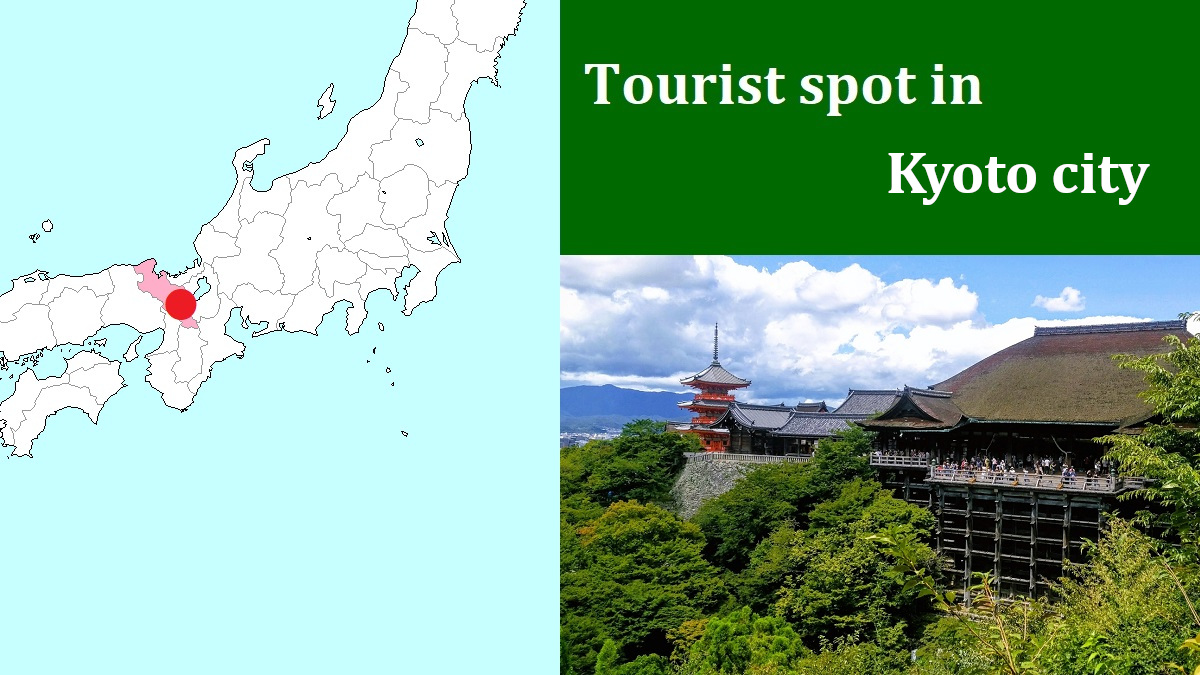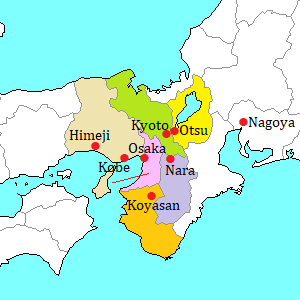Fushimi Inari Taisha shrine [伏見稲荷大社]
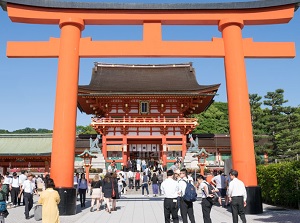
Entrance Torii & Roumon of Fushimi Inari Taisha
Photo by inariage.com
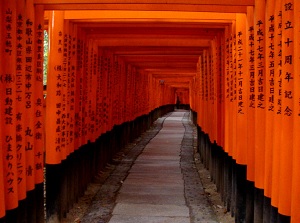
Senbon Torii in Fushimi Inari Taisha
Photo by Kyoto Free Photo
Fushimi Inari Taisha is a Shinto shrine located about 1.3 km south of Tofukuji temple.
It is located about 3 km south-souteast of Kyoto station.
This shrine was founded in 711.
And it is the head shrine of about 30 thousand "Inari Shrines" across the country.
"Inari" means "load of rice", so Inari shrine enshrines the god of agriculture.
Manufacturing and commerce had developed since the middle ages, so Inari shrine has been worshipped as the god of business.
Since ancient times, fox has been the messenger of Inari God.
Therefore, the statues of fox are set up in the precinct of Inari Shrine.
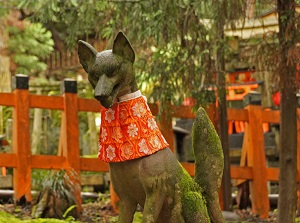
A statue of fox in Fushimi Inari Taisha
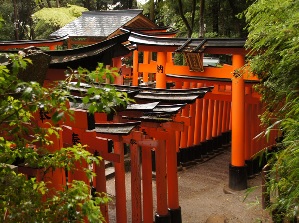
Many Torii gates in Fushimi Inari Taisha
The main shrine was destroyed by fire in the civil war in 1476, and was rebuilt in 1499.
It is designeted as a important cultural property.
In Inari shrine, there are many Torii gates.
Torii is a gate to the sacred area, and there has been the custom to donate Torii to Inari shrine since the middle ages.
There are thousands of Torii gates in Fushimi Inari Taisha.
The buildings and Torii gates in Inari shrine are painted vermillion.
The color has been used in many Shinto shrines, but it is said that vermillion is the color of power of Inari god in Inari shrine.
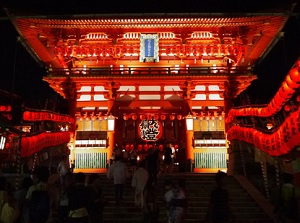
Roumon in the evening
Photo by Kyoto Free Photo
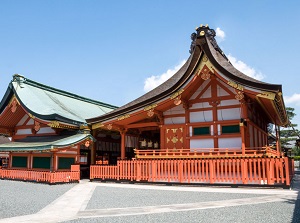
Honden of Fushimi Inari Taisha
Photo by inariage.com
Mount Inari (Inariyama, 233 m) is the south end of Higashiyama mountains on the east side of Kyoto city.
The precinct of Fushimi Inari taisha is from the top to the western foot.
The distance is about 1.5 km.
The western edge of the precinct is the entrance of the shrine.
There is a big Roumon gate (楼門) built in 1589.
And there is Honden (本殿, main shrine) and some other buildings around there.
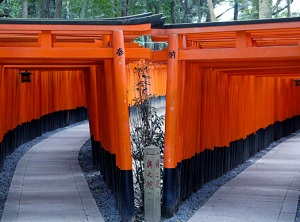
Entrance of Senbon Torii. Take the right route.
Photo by Kyoto Free Photo
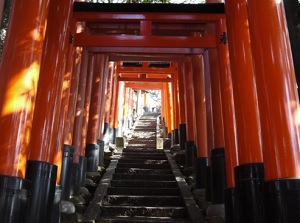
Slope of Senbon Torii
Photo by inariage.com
There is popular Senbon Torii (千本鳥居) in back of Honden.
It is an approach to Okusha Hohaisho shrine (奥社奉拝所), and hundreds of Torii gates stand densely like a tunnel along the approach.
There are two routes, and you must walk on the right route and return back on the left route.
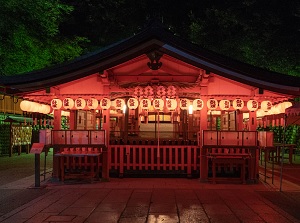
Okusha Hohaisho of Fushimi Inari Taisha
Photo by Kyoto Free Photo
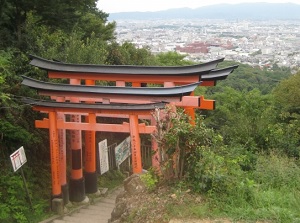
Approach to the top of Inariyama
Another approach is on the left side of Honden.
It leads to the top of Inariyama, and the distance is about 1 km.
On the top, a loop path around the peak is set up and the length is about 1.5 km.
Along the approach and loop path, small shrines are dotted and there are also many Torii gates.
How to get here
By JR Nara Line, about 5 minutes from Kyoto station to Inari station.
About 150 meters walk to Roumon gate.
Or, by Keihan Railway, get off at Fushimi-Inari station.
About 400 meters walk to Roumon gate.

